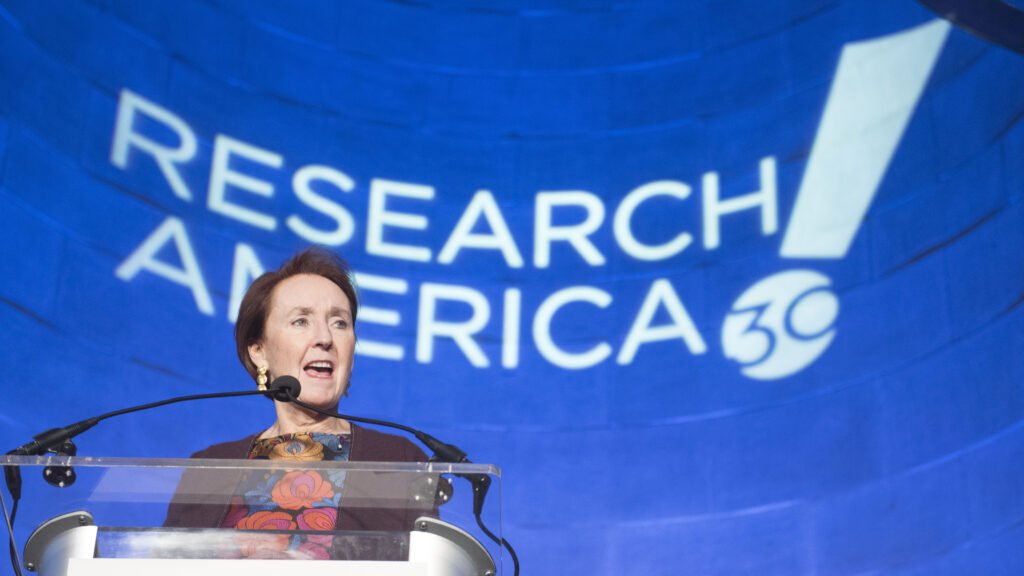Mary Woolley has been a prominent figure in the intersection of science and politics for most of her career. As the president and CEO of Research!America since 1990, Woolley has navigated through various challenges where science and politics clashed. One such instance was the attempt to reduce the budget of the National Institutes of Health in the mid-1990s. The Covid-19 pandemic also brought about a wave of skepticism towards science, while the current Trump administration has proposed significant cuts to research funding.
Woolley emphasized the importance of science in advancing public goals and expressed concerns about the vilification of certain scientific issues based on political affiliations. She highlighted how the current political climate has led to unnecessary battles that hinder progress in health and security.
Despite the challenges, there are signs of hope. A recent endorsement by a Senate committee for a $400 million increase in the NIH budget indicates a possible rejection of the administration’s proposed cuts. This positive development showcases the impact of advocacy efforts in influencing policy decisions.
In a candid conversation with STAT, Woolley reflected on her journey at Research!America and shared insights on the dynamics between science and politics. She emphasized the need for scientists to understand the nuances of the political process and how decisions are made with incomplete information. By bridging the gap between science and politics, Woolley believes that progress can be achieved for the benefit of society.
One of the significant achievements during Woolley’s tenure was the doubling of the NIH budget in the late 1990s and early 2000s. Through strategic advocacy efforts, Research!America mobilized support from the public, congressional members, and even former leaders to push for increased funding for medical research. The success of this campaign demonstrated the power of collaboration and perseverance in influencing policy decisions.
Looking ahead, Woolley remains optimistic about the future of research advocacy. She emphasized the importance of staying engaged and proactive in advocating for science amidst challenging political landscapes. Despite her upcoming departure from Research!America in early 2026, Woolley’s passion for the mission of advancing research and public health remains unwavering.
As she passes the torch to future leaders, Woolley’s legacy serves as a testament to the impact of advocacy in shaping the intersection of science and politics. By continuing to champion the value of research and innovation, organizations like Research!America play a crucial role in influencing policy decisions that drive progress and improve the well-being of society.


